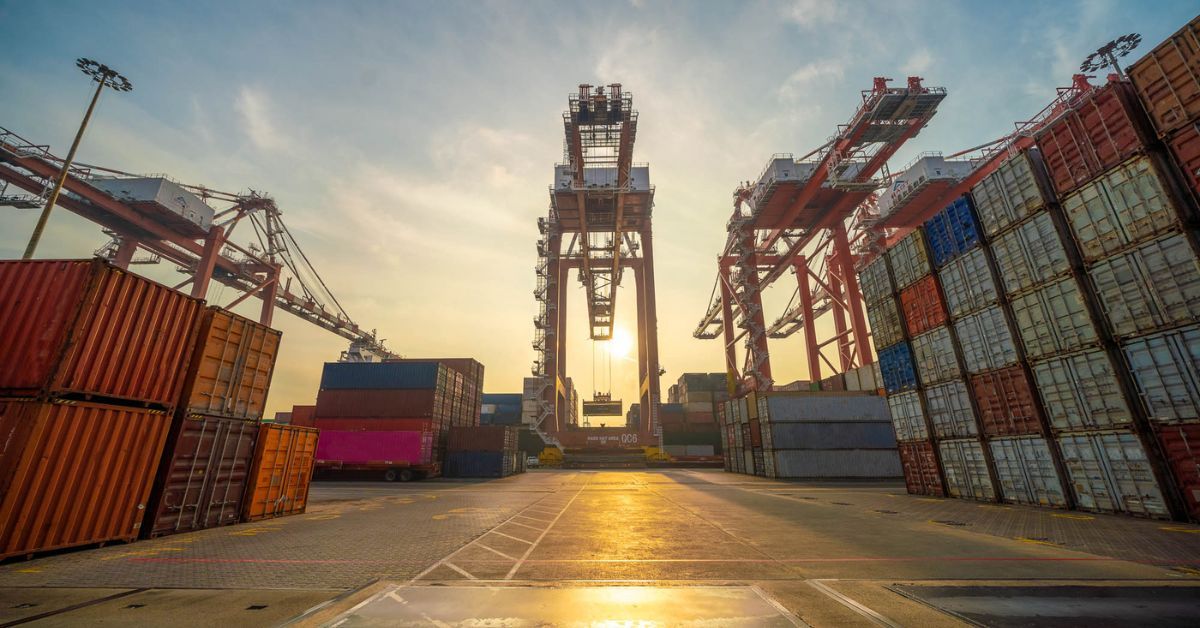- 35% reduction in Scope 1 carbon footprint
- 5,301 MT of carbon emissions reduced through green technology investments
- Rs 180 million donation to Ministry of Health island wide ‘Thriposha’ programme
South Asia Gateway Terminals, Sri Lanka’s first Public Private Partnership container terminal in the Port of Colombo, published its sustainability report for the period 2022/23 this week. Built around the theme of “An Unwavering Commitment to Sustainability”, this is the company’s fourth consecutive report. SAGT is one of the few terminal operators around the world and remains the only terminal operator in the Port of Colombo to publish an accredited Sustainability report with tracking and disclosure in keeping with global standards and best practices. The report outlines the measures taken by the Company to remain true to its sustainability commitment and presents related performance monitoring for the period.
SAGT’s sustainability report is aligned to the Global Reporting Initiative (GRI) standards enabling the organization to report the impact of its activities in a structured and transparent manner. Further, SAGT has adopted the Task Force for Climate-Related Financial Disclosures (TCFD) for its fourth consecutive report giving stakeholders a more holistic outlook on climate related risks.
Despite the challenges faced by the economic downturn and political unrest in the country, SAGT continued operations with no interruptions in service to its customers and enhanced its business processes through strategic investments for sustainable growth.
During the reporting period SAGT achieved a 25% reduction in its overall carbon footprint resulting in the reduction of 5,301 Metric Tonnes of carbon emissions from being released into the environment. This performance was achieved primarily through reduction in its scope 1 carbon emissions. Scope 1 carbon emission reductions was through investments and initiatives such as the conversion of rubber tyred gantries form diesel to hybrid electric-diesel power and then prioritising the utilization of hybrid RTG’s for operations. Consequently, SAGT’s scope 1 carbon footprint reduced by 35%. Furthermore, SAGT’s scope 2 carbon footprint recorded a decrease of 9% for the reporting period, mainly attributable to the 12% reduction in ship-to-shore crane electricity consumption.
In the period under review, SAGT increased its commitments towards its environmental stewardship by entering into a partnership with Greenstat Hydrogen (Pvt) Ltd to formulate a strategic plan to accelerate electrification and decarbonization at the Port of Colombo, through a green-hydrogen pilot project.
With a view to accelerate the efforts to minimise the impact on the environment through formal ‘carbon off-set initiatives’, the Company has also committed to investing in two organised restoration projects, outside the confines of its operating environment. The first is the ongoing reforestation of 5 acres of the Yagirala forest reserve and in the year under review a new partnership with the University of Sri Jayewardenepura’s Centre for Sustainability, that will restore five acres of Mangroves in the Benthara River mangrove complex. Mangroves are an extremely efficient natural ‘carbon sink’ and this partnership commitment for 5 years, will serve as a crucial pilot for further restoration whilst giving SAGT an offset in excess of 2,732 tons of carbon, equal to 17% of the terminal’s current emissions.
The Company sought membership in the UN Global Compact, further underscoring the commitment to upholding and working towards global sustainable development goals. In addition to multiple initiatives in cash and kind to support staff and stakeholders through the unprecedented hardships that arose as a result of the economic crisis in 2022/23, SAGT also committed to partially fund, re-starting the stalled national “Thriposha’ nutrition programme of the Ministry of Health that addresses malnutrition in pregnant and lactating mothers and children under 5 years, through a donation of milk powder to the value of Rs. 180 million.
Commenting on the publication of the report and the company’s concerted sustainability and corporate responsibility efforts, SAGT’s Chief Executive Officer, Romesh David stated “SAGT is pioneering sustainable terminal operations within the Port of Colombo by investing and optimising energy efficient infrastructure, integrating technology and improving business processes. Since the Company’s re-affirmation to sustainability in 2018, SAGT has been at the forefront in integrating and developing sustainable solutions and practices within its business and setting industry benchmarks both locally and regionally”. Looking towards the future he went on to state “whilst doing the utmost to sustain the most deserving segments of our communities, we are making serious changes to achieving decarbonisation of our business. We remain committed to showing leadership towards charting a sustainable future not only for SAGT, but for the Port of Colombo overall”. South Asia Gateway Terminals (SAGT) is the first Public Private Partnership container terminal in Sri Lanka (with approximately 60% Sri Lankan shareholding) and commenced operations in 1999, launching the Port of Colombo as global trade’s preeminent gateway hub to South Asia. Today, the terminal is one of three operators in the Port of Colombo and continues to offer the international container shipping community a competitive best in class service. SAGT is a Board of Investment flagship company whose shareholders include – John Keells Holdings, Maersk/APM Terminals, SLPA and Evergreen Marine Corporation.







